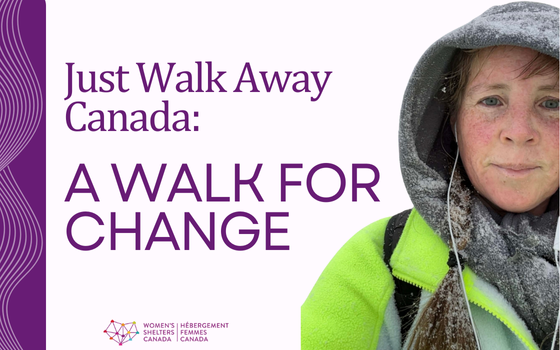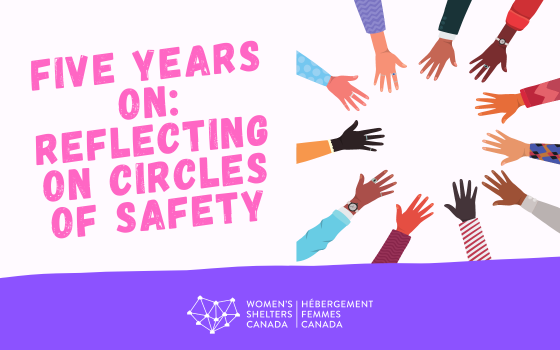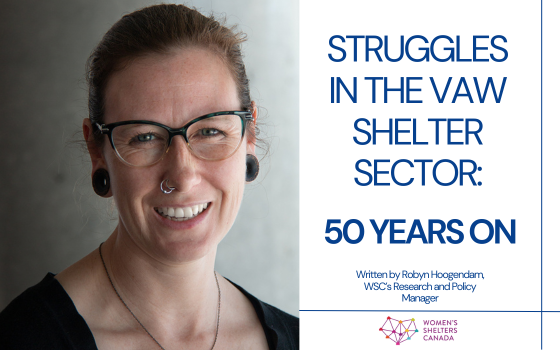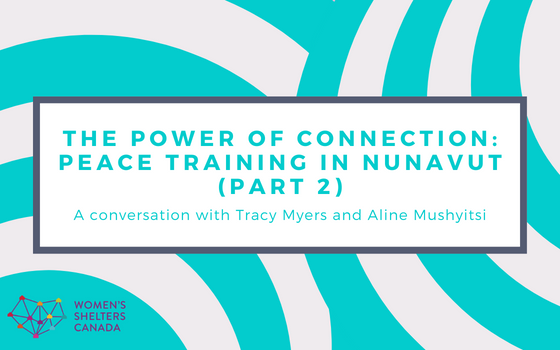 Like many of you across the country, our last normal day at the Women’s Shelters Canada office was Friday, March 13, 2020. After that, we struggled to work from home with our uncertainty and fear – for us, for our loved ones, and for women and children living with violence.
Like many of you across the country, our last normal day at the Women’s Shelters Canada office was Friday, March 13, 2020. After that, we struggled to work from home with our uncertainty and fear – for us, for our loved ones, and for women and children living with violence.
Women’s shelters and transition houses across the country were suddenly thrust into a new reality. They had to decrease the number of women and children who could stay in the shelter itself when they were already turning people away due to lack of space. Staff returning from March travels had to self-isolate, while others suddenly had children out of school. Shelters had to adopt new, rigorous cleaning schedules, implement rosters for use of communal areas, and set up plexiglass barriers. Face masks, hand sanitizer, and PPE was in short supply and desperately needed.
Amidst all of this, many shelters saw their admittance requests dry up, their phones stop ringing. This eerie quiet was worse than higher rates of calls would have been, as it meant that women could no longer reach out for help as they were trapped at home with their abusers. They no longer had the commute to work, the walk to school, the shopping trip to make that life-saving phone call. They were isolated from their friends and family due to a global public health crisis. They felt more alone than ever.
WSC’s annual Shelter Voices report focused on the impact of COVID -19 on shelters. The data confirmed the increase in frequency and severity of domestic violence during the pandemic.
2020 will go down in history as a year of turmoil and grief, which began with the shooting down of Ukraine International Airlines Flight 752 as it left Tehran, Iran, saw Canada’s deadliest mass shooting in Nova Scotia, and is ending with the highest COVID-19 rates of infection across the country during the pandemic.
But the pandemic has also shown us the best in people. We have seen shelters quickly pivot and adapt to the new COVID-19 restrictions and reality, as they continue to keep women and children safe from both the virus and from violence. Shelters and transition houses have come up with unique ideas for isolation sites, for online fundraising, and for helping kids with online school. The media has published countless stories about the work shelters are doing and the impact COVID-19 has had on violence against women. Organizations and individuals have reached out and donated to keep women and children safe.
For us at WSC, 2020 had many positive moments. We received more financial donations than in any other year. Companies like L’Oréal and H&M reached out to us to donate goods to shelters across the country. We received a $4.5 million grant from the Rogers Foundation, half of which was distributed to the provincial and territorial associations that are our full members. We expanded our knowledge exchange program to include monthly, well-received webinars.
Perhaps the most important thing to happen for WSC this year was our partnership with the Department of Women and Gender Equality (WAGE). WAGE reached out to us early on during the pandemic to see if we had the capacity to distribute federal funds directly to women’s shelters and transition houses across the country. WSC is not a funding organization; we work to support shelters through programming, research, and advocacy. This was the first time in our short history, with our five-person staff team, that we would be distributing millions of dollars to hundreds of shelters from coast to coast to coast.
But we did it – and we knew we could. We put in the extra effort – the overtime, some sleepless nights – and we got $20.5 million out to over 400 shelters in the Spring. We are currently doing the same with an additional $17.5 million, working hard to get the money into shelters’ bank accounts before the end of the year. Our efforts were recently featured on CBC’s The National.
We don’t know what 2021 will bring, but we do have hope. With multiple vaccines, emergency funding for shelters, increased public awareness, and the resiliency and bravery of women and children fleeing violence, there is light at the end of the tunnel. We will continue to work to end violence against women in Canada, and we hope you will continue to support us in doing so.
Thank you, and Happy New Year.
Photo by Andrey Metelev on Unsplash




